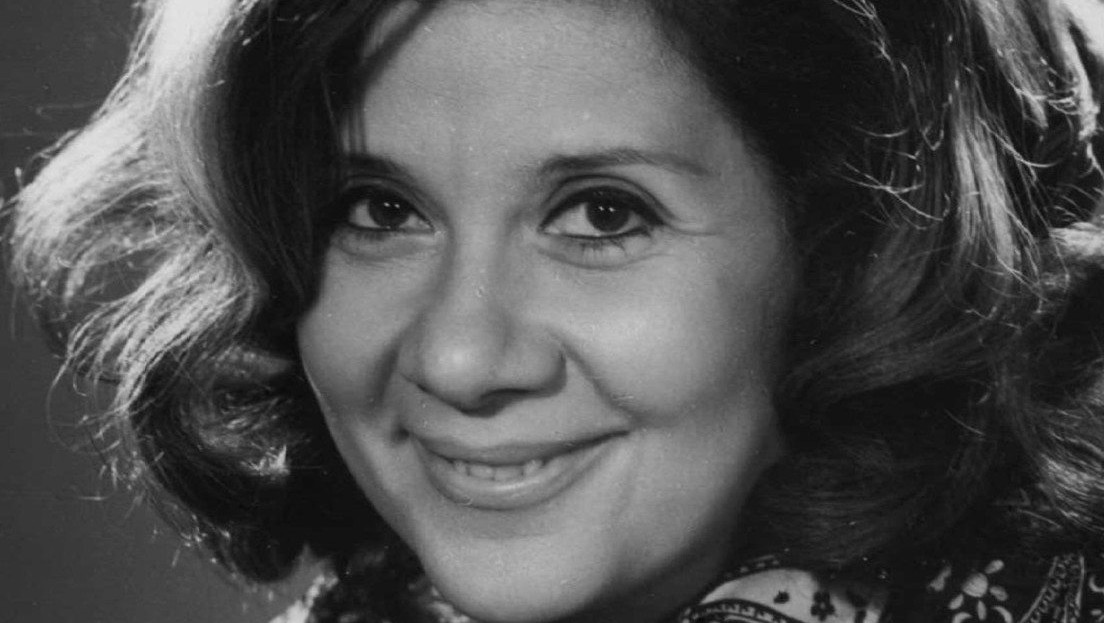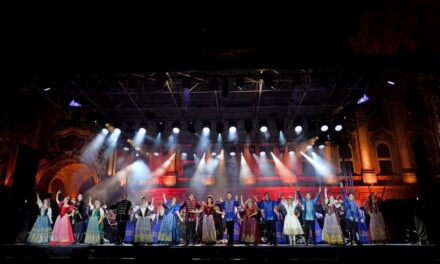"Command with me, Fairy Queen" - the one-sentence role that launched one of the greatest artists of her generation on her career. Éva Ruttkai's individuality, unforgettable portrayals and her private life suitable for dramas still liven up the memory of Éva Ruttkai. He would be 96 years old today.
There is a lot of information about the exact date of his birth. The actual day is December 31st, but her mother tried to convince the doctor to write it down a day later to January 1st, 1928, because she will become a woman, so let her gain a year. The doctor was not willing to do so, but in the heat of the argument he - probably by accident - wrote their house number, i.e. 29, on the paper.
He came into the family as the sixth child, but only three of the siblings survived. They lived in great poverty, so the children were often taken to auditions so that the family could get by more easily by supplementing their income with the money from the performances. On one such occasion, his mother was informed that they were looking for a little boy for the Vígszínház. Judging his son named Iván as suitable for the role, he would have gone to the audition immediately, but there was no one to leave his little daughter, so he took her with him. When they were waiting behind the scenes, little Éva suddenly pulled her hand out of her mother's grip and walked into the middle of the stage. Eventually, he was signed along with his brother. Their brother Otto sang in the choir of the Opera House.
Éva Ruttkai recited at the Academy of Music in 1945, where the director of the Vígszínház at the time, Dániel Jób, noticed her and signed her to his company. He remained a member of this theater throughout, with the exception of a short national detour.
Ferenc Molnár's The Swan, replacing the sick Klári Tolnay. She met Miklós Gábor, her later husband, the father of her only child, when she sat in on a performance at the Művész Színház one night. He told his mother, who was sitting next to him, about the man:
"It is to a man what I am to a woman."
Ruttkai has appeared in many TV shows and more than half a hundred films. He often recited and performed chansons with a special charm, which were immortalized on records for posterity.
During her career spanning four decades, she proved that she is one of the most versatile Hungarian actresses. She has excelled in many genres and has portrayed a wide variety of female characters. Her favorite performances were Tolstoy's Natasha and Anna Karenina, as well as Shakespeare's Juliet. Iván Darvas, with whom they appeared a lot, had this to say about her: "Éva Ruttkai was the actor whose eyes you could look into, whose eyes were worth looking into. And from whose eyes you got an answer. I think that this is the most that can happen between two actors on stage, that there is a reason to look into each other's eyes."
He met Zoltán Latinovits for the first time on stage in 1960 in the Ilyen nagy szerelem , for which he was invited by his brother, who was a theater director in Miskolc at the time. The actress only had to drop in for a few performances, she did not attach any particular importance to the occasions. He only had a few sentences in the rehearsal, but as he turned to Latinovits, their eyes met and time stood still. Ruttkai forgot everything, he couldn't continue, he felt that his own eyes were looking back at him.
Despite this, she resisted Latinovits for a long time, did not take his approach seriously, because she was afraid that the younger, still anonymous rural actor was courting her only hoping for an opportunity to advance. When the performances ended in Miskolc, the actress returned to Budapest. Latinovits jumped on the train at the last minute with flowers and a stuffed animal bought from borrowed money. However, on the train journey, he failed to convince Éva Ruttkai of his feelings. The disappointed man got off the train to return to Miskolc with the money he received from the actress, when the woman saw the vulnerable and alarmed Latinovits on the platform, she fell in love with him, a love that lasted until their deaths. In the early 1980s, the actress's health deteriorated, but this did not keep her away from her profession either. As long as he was able, he was on stage until he joined the celestial theater company in 1986.
He once said of himself:
“It is impossible to know exactly what my importance is, but I must serve as a star. And it's not the brilliance, not just the brilliance, because the star has a job to do. A star's job is to shine far away. And it's very difficult…”
hirado.hu
Featured image: National Photo Gallery/ Éva Keleti












